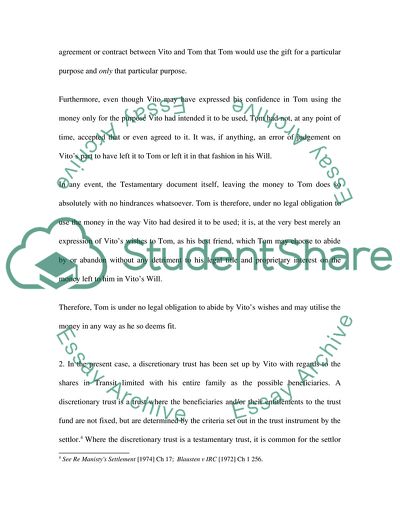Cite this document
(Problematic Questions of Testamentary Document Case Study - 1, n.d.)
Problematic Questions of Testamentary Document Case Study - 1. https://studentshare.org/law/1705237-problem-question
Problematic Questions of Testamentary Document Case Study - 1. https://studentshare.org/law/1705237-problem-question
(Problematic Questions of Testamentary Document Case Study - 1)
Problematic Questions of Testamentary Document Case Study - 1. https://studentshare.org/law/1705237-problem-question.
Problematic Questions of Testamentary Document Case Study - 1. https://studentshare.org/law/1705237-problem-question.
“Problematic Questions of Testamentary Document Case Study - 1”. https://studentshare.org/law/1705237-problem-question.


